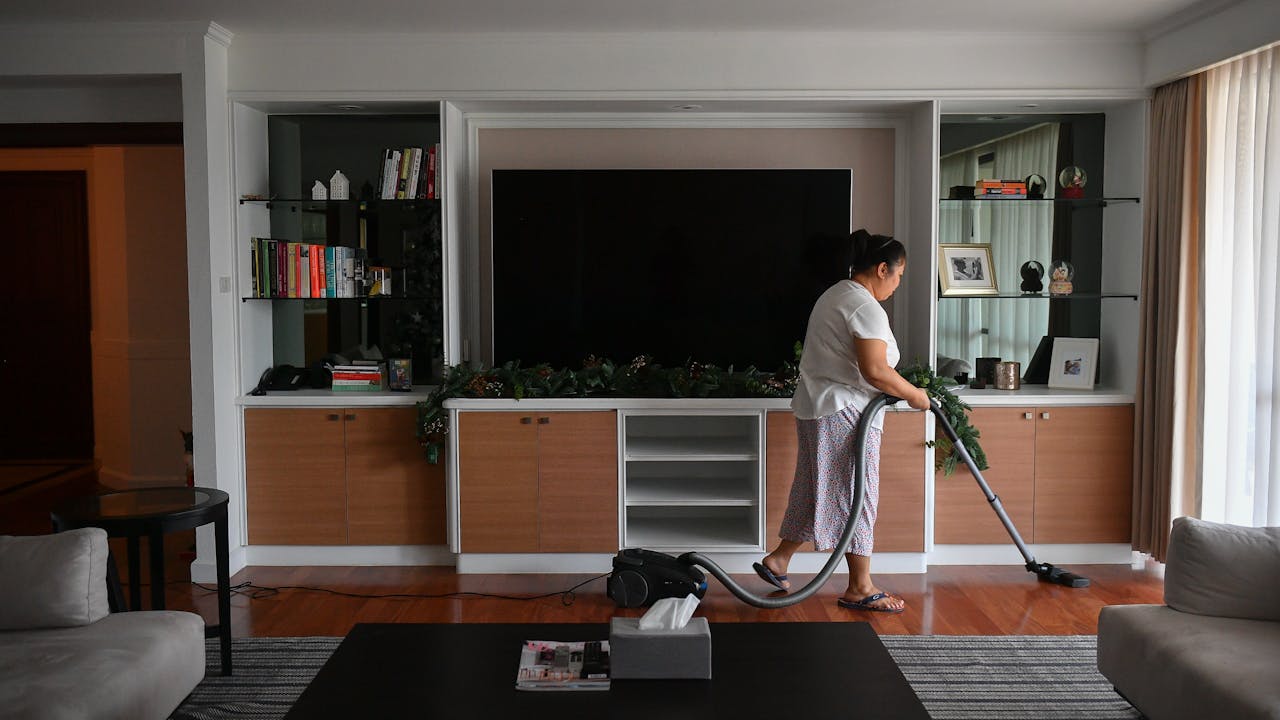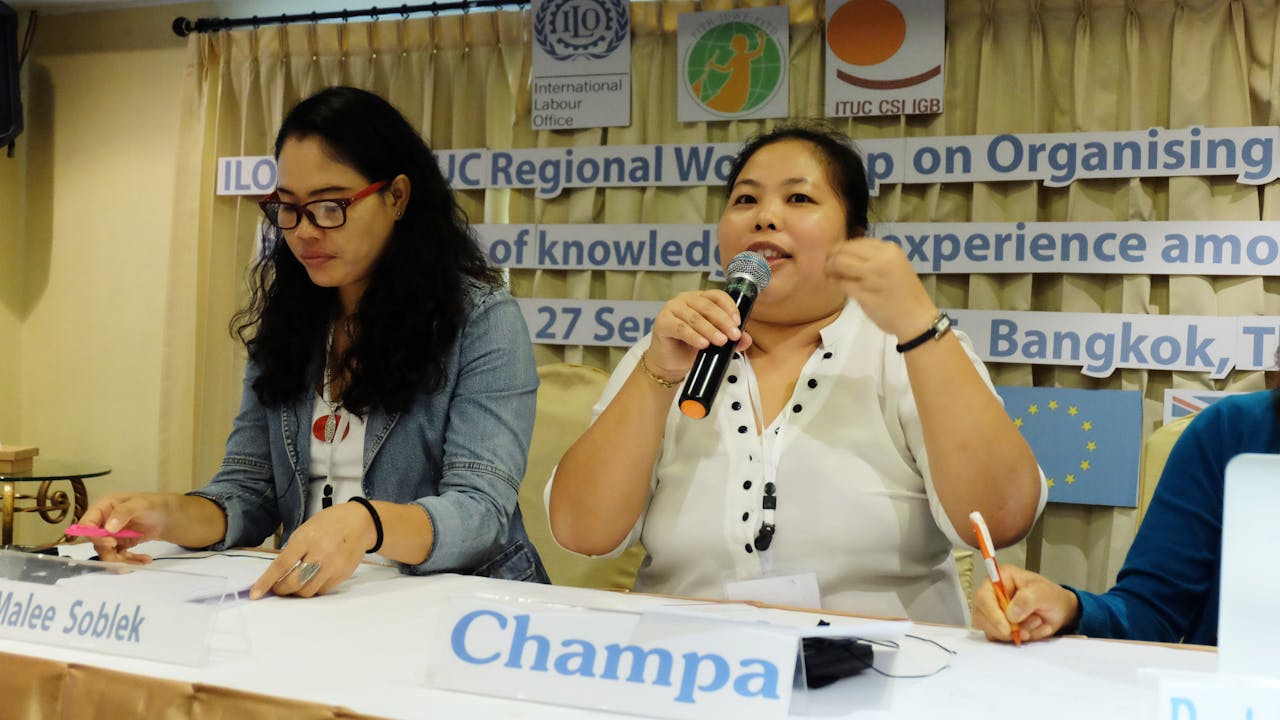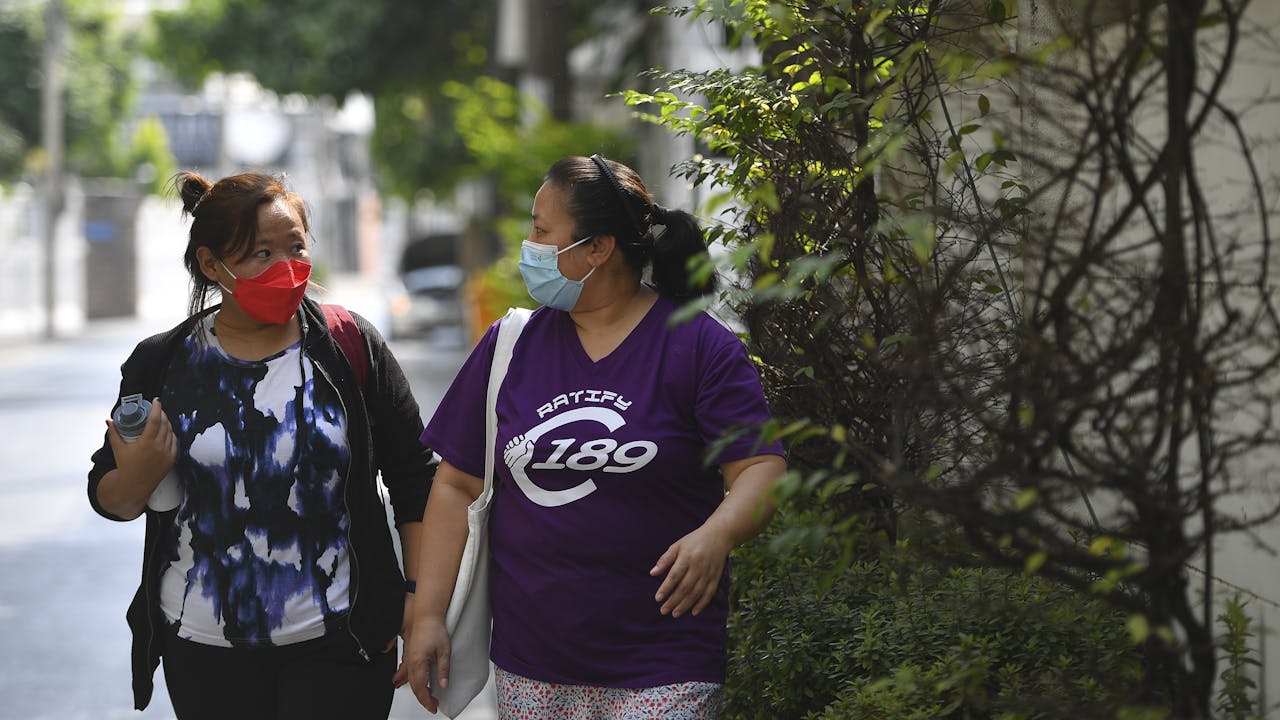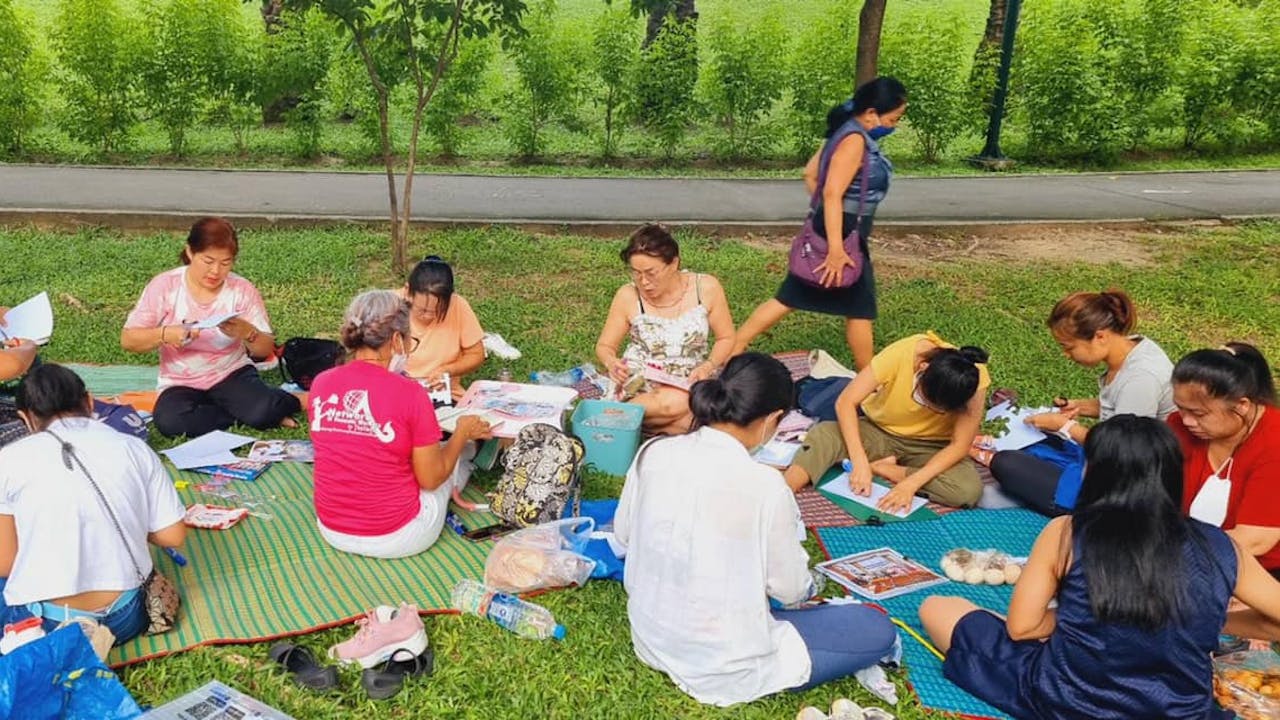My name is Champa. I grew up in a village in Myanmar. When I was five years old my father died. I am the youngest of nine children, and as a daughter, I was the one who had to help my mother.
As I got older, I began to notice that there were people in the village who had returned from a place they called Bangkok. Back then I didn’t know what Bangkok was. I didn’t know what country it was in. All I knew was they had nice clothes. They had money to give their parents. They built their own houses. Their houses were more beautiful than ours. So, I decided I would go to Bangkok and help support my mother.
At the time you had to be 25 to travel alone as a woman. I was 16. So, I used the ID card of my elder sister. We looked very much alike, and I had very long hair which made me look older.
My brother was already in Bangkok working as a gardener. He helped pay for the travel costs. It was illegal to cross the border, so I paid an agent to help me get to Bangkok. An older woman from our village travelled with me. We were lucky or maybe our agent was good. I don’t know why, but we didn’t get arrested.
In Myanmar we are called Gurkha. I am of Nepali descent so I can speak Hindi. This helped me find work as a nanny and housekeeper at an Indian family’s home in Bangkok. They spoke English, Hindi and Thai. They were like my teachers. I learned Thai and English there. I am very grateful to them.
But there were obstacles and problems. The first problem I faced was that there were no days off. I didn’t think about this when I asked to work there. I knew that the work would pay me 1,800 baht per month (USD 52). Other than that, I knew nothing.
I used to wake up early every morning to work. My life was always full of work. One month passed by, then two, then three. There was no mention of a day off. The first month I was happy. The second month I got tired. By the third, I was exhausted.
I had lots of extended family in Bangkok. I saw they were getting days off. Some came to visit me once a month and brought me snacks from Myanmar. When they would leave, I would get very sad. Why could they visit me, but I could not visit them? Remembering it now, I get goosebumps.

When I started working as a domestic worker I knew nothing about my rights.
© ILO/OIT Chalinee ThirasupaI gathered my courage after several months had passed and I knew my employer better. I decided I would wait until they were in a good mood, like when they were watching a movie. I would peek inside the door and look at their faces. This is true, I’m not overstating it! If they were happy and smiling I would ask if I could take a day off. I managed to get a day off every 3 months.
The employers also had their excuses. For instance, they would say “You don’t have a visa. If you go out you will get arrested. Do you want that to happen?”
At the time I was young. I thought I was naughty. I thought if I got caught, then oh well. I had to get out.
When I asked for a day off my employers would say: “You don’t have a work visa. If you go out you will get arrested. Do you want that to happen?”

After five years of this I wanted more days off, so I resigned. I kept changing jobs, looking for one that would give me regular days off. I found a job with one day off a week. Everyone on our street said, “You are so blessed.” I kept thinking this wasn’t right. Having a day off shouldn’t be based on fortune. It had to be based on law.
Back then, I didn’t know about workers’ rights. Then in 2014 I found out about a non-governmental organization called HomeNet Thailand. They ran an event for migrant workers. By then I had a workers’ visa. But then it expired. Not only mine. All migrant workers’ visas expired.
When we arrived at the event, we met someone from HomeNet Thailand as well as officers from the Royal Thai Police Immigration Bureau. They told us what steps we would need to take in order to renew the visa. They understood the problems of migrant workers. They told us to share the information with our friends and that there was no need to panic.

At a Regional Workshop on Organizing Migrant Domestic Workers, held in Bangkok, Thailand in September 2015 by the International Labour Organization (ILO), the International Domestic Workers Federation (IDWF) and the International Trade Union Confederation (ITUC).
© Fish Ip/IDWFI started going to more and more such events. I got involved with HomeNet’s activities and began to learn about workers’ rights for domestic workers, such as a day off each week and holidays. These are basic things. These are our rights. It isn’t about whether or not you have good fortune, or a good employer.
I learned from an ILO project about labour rights for migrant domestic workers. Back then we knew that there was a network of Thai domestic workers, so we joined them. But then we realised that our problems were not the same as those of Thai workers, who don’t have to deal with work permits and visas.
Among our family and friends, we say that apart from breathing, our priorities are our passports and work permits. We joke about this.
Among our family and friends, we say that apart from breathing, our priorities are our passports and work permits.

We agreed to gather as a group and provide information about labour rights to domestic workers, as well as migrant workers in other sectors. We help spread correct information and post it in our Facebook group.
I think it’s good that we work this way. Also, I have been working for almost 30 years. I know several languages. There are so many people that don’t speak Thai. So, I think it’s my duty to help other migrant domestic workers.
Recently, I went to a HomeNet meeting on what labour rights are included for domestic workers. We learned that because we have employers, we should be entitled to social security. Then why don’t we get this right?
I started to think about female domestic workers, and how they typically get fired when pregnant. Or even if they are not fired, it can be hard for them to work. They are afraid to ask their employers for days off. This is not right. And after you deliver a baby, you have to take care of the baby, you have to have enough money.

I feel I have a duty to help other migrant domestic workers.
© ILO/OITI am working with other networks to lobby the government for domestic workers’ rights, in particular our lack of access to social protection. We’ve told them how having social security would help us. How our lives would be much better.
Think about it. I have many Thai domestic worker friends who are 50 to 60 years old. They have worked since they were in their late teens or early twenties. This is their occupation. They have jobs and employers like other workers do. But the government has excluded domestic workers from receiving social security benefits.
Look at me. At 18 years old I was working and could have deposited money into the social security fund. I have been a domestic worker for 30 years now. There hasn’t been a single month when I didn’t earn an income. Thirty years multiplied by 12 months.
If we could contribute to the social security fund when we are able to work and have a salary, no one would have to worry about the future and which of their children would care for them. Whatever they earned, they could save for when they are old.
Now I am 46. Some of my friends are already 60. They are worried about when they will no longer be able to work. When we don’t have energy to work as domestic workers, who will take care of us?

Members of our migrant domestic workers network create signs calling for the Thai government to ratify ILO Convention 189, which sets out labour standards for domestic workers.
© Nan Zar Ni MyintI want to convey a message to the government to please include domestic workers in Social Security Article 33 like other workers. Include everyone. Because we also have employers. We are workers. Domestic work is an occupation. It’s labour. Don’t think that domestic work is not productive work. Actually, we are productive for the country and the economy.
Many of our employers are even members of parliament. They can go to work because we take care of their children and grandchildren. Yes. But they don’t say that we are workers and a part of the economy of this country. They think this occupation is lowly. If people think like this, there is no way we can overcome this challenge. I think this is the most important point.
Whatever the government does, we want them to think about the millions of migrant workers out there. We want them to have easier visa and work permit renewal processes that allow everyone to live in Thailand legally. We want them to provide us with social protection. We don’t want talk about us being bad workers. We pay taxes like other people do. We want to be good workers and be able to earn money to feed our families back home.
